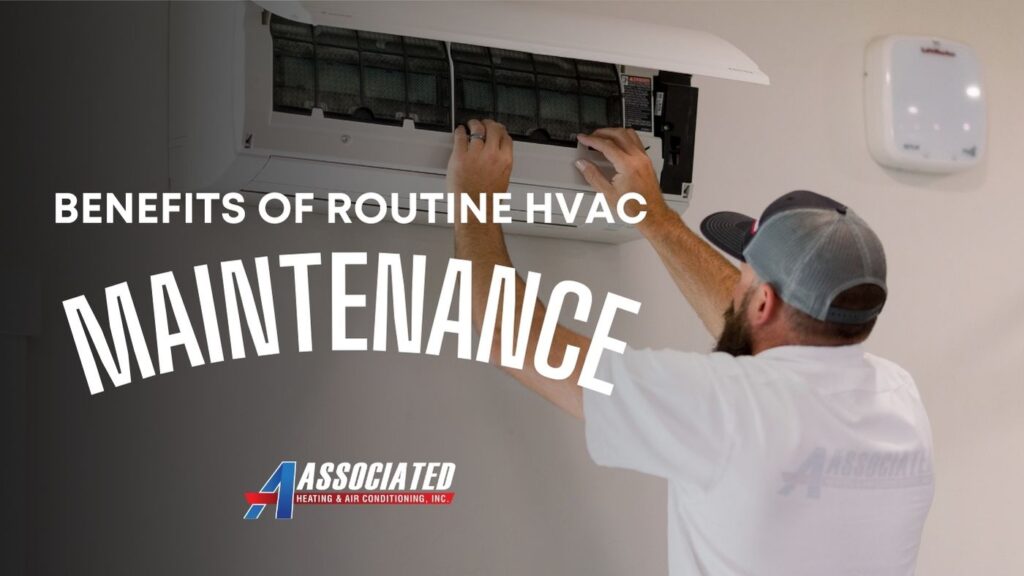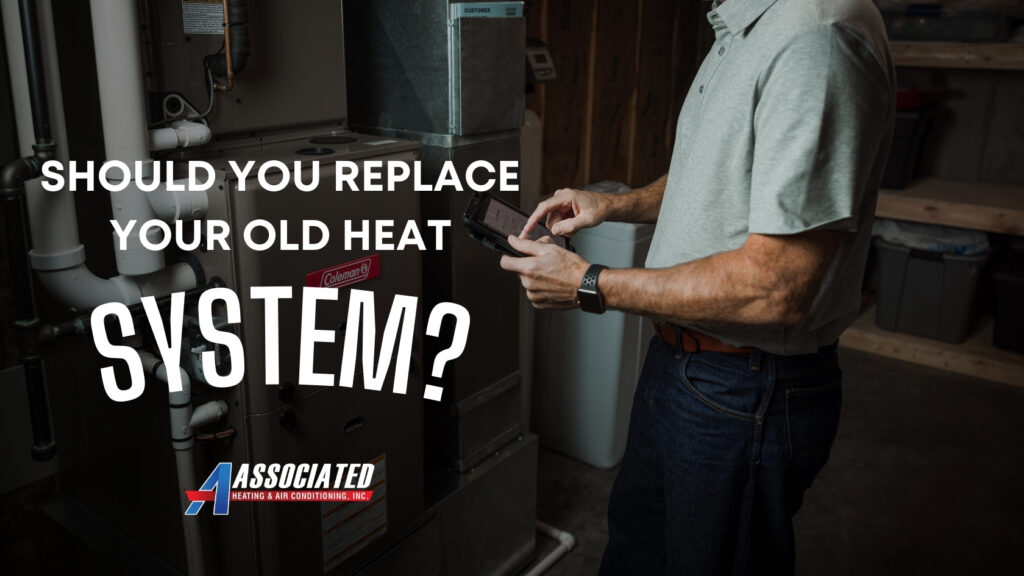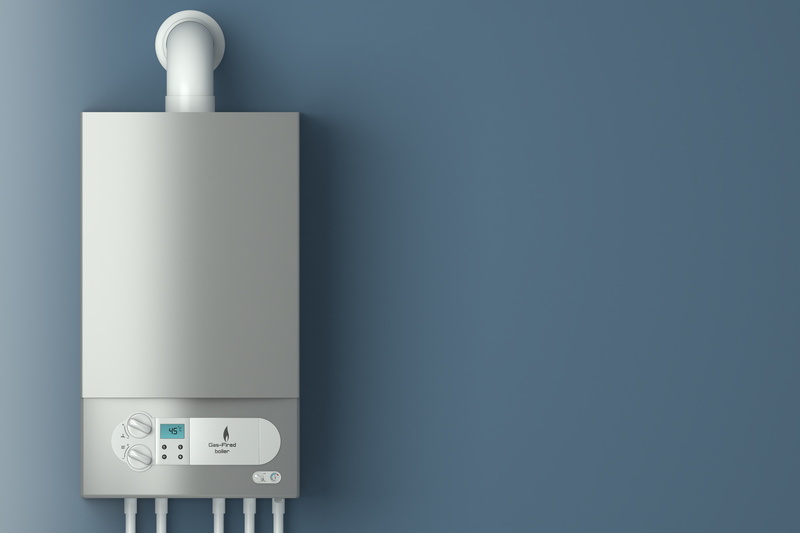As fall settles in, many homeowners start preparing for the colder months ahead. While you might be thinking about pulling out extra blankets or sealing windows, your neighbors may already be making a bigger change—replacing their old heating systems. At Associated Heating and Air Conditioning, we’ve seen a steady rise in fall heating upgrades, and for good reason. If you’ve noticed your neighbors scheduling heating replacement appointments, here are some of the most common reasons why.
Associated Heating and Air Conditioning, Inc. Blog: Archive for the ‘Heating’ Category
Why Your Neighbors Are Upgrading This Fall
Monday, September 22nd, 2025Switching from AC to Heat: What Homeowners Should Know
Monday, September 8th, 2025As cooler mornings start rolling in, many Eugene homeowners are preparing to switch their HVAC systems from cooling to heating. This seasonal transition is more than just flipping a switch on the thermostat—it’s a critical time to ensure your heating system is ready for reliable and efficient performance. At Associated Heating and Air Conditioning, we recommend scheduling professional heating maintenance before the cold weather settles in.
Upgrade Your April Showers With a New Water Heater
Monday, April 28th, 2025At Associated Heating and Air Conditioning, we know how important reliable hot water is for your home—especially during those chilly spring mornings in Eugene and the Willamette Valley. If you’ve noticed your hot showers turning lukewarm or your energy bills creeping up, it might be time to consider an upgrade. This April, why not give your home the gift of comfort and efficiency with a new water heater?
Whether you’re tired of waiting for your water to heat up or you’re ready to cut down on energy costs, upgrading to a modern water heater can make a world of difference. Let’s explore the benefits of new water heaters and help you decide between the popular tanked and tankless options.
Troubleshooting vs. Repairing Your Heater
Monday, December 2nd, 2024When your heating system breaks down during the winter, it can be a scary experience. You want to get that heater working as fast as possible! But you don’t want to do any actual repairs—at least, we don’t want you to do any actual repairs. Trying to fix a central heating system if you’re not a licensed professional is risky. Even if you could successfully correct the problem, there’s always the potential for safety hazards. It’s not worth it.
However, you can try to troubleshoot your heating problems. In this blog post, we’re going to look at some troubleshooting steps for when you’ve got a faulty heater, and help you distinguish between troubleshooting and an actual repair that will require you calling for heating repair in Springfield, OR.
Why Can’t My Furnace Make the House Warm Enough?
Monday, November 18th, 2024Your furnace is supposed to be a reliable source for heat through the winters, but what happens when it starts falling behind? A furnace that struggles to maintain the desired temperature can turn winter into an uncomfortable one.
We’ve seen this issue in many homes, and the causes can range from troubles that will require furnace repair in Eugene, OR to more serious ones that mean it’s time for a new furnace. Let’s explore why your furnace might not be keeping your home warm enough and what to do about it.
Complete Guide to Ductless HVAC Systems
Tuesday, July 9th, 2024Top Benefits of Going Ductless in Your Home

When it comes to heating and cooling your home, traditional HVAC systems have long been the go-to solution. However, in recent years, ductless heating and cooling systems, also known as mini-split systems, have gained popularity due to their numerous advantages. If you’re considering upgrading your home’s climate control, here’s why a ductless system might be the perfect choice. And if your system is already installed, be sure to watch for these ductless AC repair issues to ensure it continues to operate at peak efficiency. Unlike traditional air conditioning systems, ductless mini splits eliminate the need for ductwork and offer direct control over room temperatures. Additionally, they provide both heating and cooling capabilities, making them a versatile alternative to conventional air conditioning. A ductless heat pump not only heats but also cools your space effectively during hot weather, offering reliable dual-purpose performance. If you’re considering upgrading your home’s climate control, here’s why a ductless system might be the perfect choice.
What are the benefits of ductless heat pump installation?
- Highly energy‑efficient: Ductless (mini‑split) heat pumps eliminate duct losses (up to 30 %), delivering conditioned air directly into zones and cutting utility bills.
- Fast, minimally invasive installation: Systems are connected via small conduits and refrigerant tubing rather than ducts, allowing installation in as little as a day or two.
- Customizable multi‑zone control: Indoor units in each zone let users set different temperatures room by room.
- Improved indoor air quality: Advanced filtration reduces allergens, dust, and pollutants—no ductwork means fewer contaminants circulated.
Benefits of Routine HVAC Maintenance
Wednesday, June 19th, 2024
There are many benefits of routine HVAC maintenance for your home. In fact, upkeep is essential for your system. Your HVAC unit plays a pivotal role in ensuring your indoor comfort, air quality, and energy efficiency. Regular maintenance not only preserves the longevity of your system but also safeguards against potential malfunctions and costly repairs.
Save Money with a New HVAC System
Wednesday, June 12th, 2024
When it comes to managing household expenses, one of the most impactful investments you can make is upgrading your HVAC system.
How can upgrading your heating and air conditioning installation save you money?
Installing a modern, energy‑efficient HVAC system can reduce your utility bills, lower maintenance costs, and boost home value:
- Save up to 30% on energy bills by using systems with high SEER (cooling) and AFUE (heating) ratings, such as ENERGY‑STAR certified units.
- Reduce repair expenses, thanks to increased reliability and warranties covering many components.
- Cut additional costs with smart thermostat integration, which optimizes runtime and can save around $100/year.
- Access rebates and incentives offered by utilities and governments for energy-efficient HVAC installations.
Increase resale value by installing modern HVAC equipment that appeals to potential buyers.
Heating, ventilation, and air conditioning (HVAC) systems are crucial for maintaining a comfortable living environment, but they also play a significant role in your energy bills. If your current system is outdated, investing in a new, energy-efficient HVAC system can lead to substantial savings over time. Before making a decision, it’s helpful to weigh the options between heat pumps vs central AC to determine the best fit for your home. Here’s how:
Is It Time to Replace Your Outdated Heating System?
Wednesday, April 10th, 2024
With warm weather on the way, your home’s heating system will become less important and soon you’ll stop thinking about it during the summer. You won’t turn your thoughts back to it until fall when it’s time to schedule heating maintenance in Cottage Grove, OR again.
But if you have an older heating system, it’s a good idea to start to think about whether to have it replaced once the warm weather settles in. You don’t want to enter next winter with a wobbly or energy-wasting heater, and spring and summer are easy times to arrange for putting in a new heating system.
Let’s examine some of the signs that your current heating system is ready for retirement:
Is it Time to Schedule a Heater Repair?
Wednesday, February 14th, 2024
It’s not always easy to know when you need to schedule professional heating repair because of a faulty heating system. Yes, if your heater doesn’t come on at all, you’ll know something is wrong. But often problems with heating systems start small. You have to know what to look for. Spotting these troubles early makes it easier for professionals to repair them and prevent more serious troubles later on, such as your heater failing when you need it the most.
Below, we’re going to look at five key ways you can tell your heater needs professional repairs.


